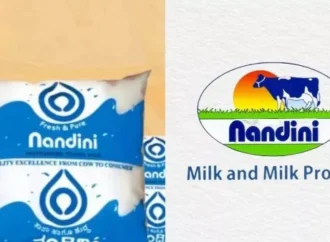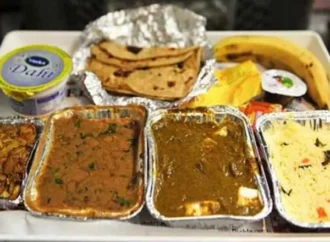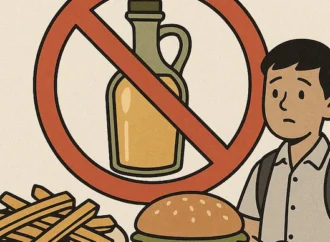Food is integral to our existence, and putting it on the table has bound families and cultures together from the very beginning. But just as everything we eat takes a long route to finally reach our tables, so in ideal circumstances, this journey is governed by a thorough protocol of legal systems. The International Organization for Standardization (ISO), which has 165 national members across the world (including India), put forward a series of ‘Food Safety Management Systems’ (FSMS) in 2005. These legal procedures prescribed to organisations for governing food safety were revised in 2018, so they remain up to date with current standards. Although the ISO isn’t the only body to advise on FSMS, their standards are quite well-known across the globe when it comes to issues of food safety.
Another well-known FSMS which is included in the ISO guide is the HACCP (standing for ‘Hazard Analysis and Critical Control Points’), a venture by regulatory systems within the United States (like the Food and Drug Administration and the Department of Agriculture).
Today, the protocols known as ISO 22000, inclusive of HACCP standards, shape the international guidelines of food safety, which range from monitoring organisations to keeping customers safe. These specific international guidelines are voluntary for most countries, but each country will usually have its own form of an FSMS.
So what are Food Safety Management Systems?
Simply put, an FSMS is a set of standards put in place to ensure the minimalisation of food safety hazards, so that the food we eat can be consumed safely and without risk. All food businesses and organisations, whether large or small, are expected to adhere to a proper FSMS. Often, depending on the industry (meat, low-scale catering, or different kinds of cuisines), systems might have separate advisory notes and guidelines. But the main takeaway is that when you’re providing food to a significant number of people, it needs to meet certain health and safety standards. And that’s why a Food Safety Management System is so important.
What are the basic principles of an FSMS?
When it comes to following a basic framework, the ISO 22000 remains a good international guideline. It focusses on communication, managing systems, certain prerequisite training programs, and on adhering to HACCP principles. When it comes to managing an FSMS, it focusses on leadership and engagement, an evidence-based approach, and an emphasis on customer health.

This all sounds a bit general, so let’s take a look at some specifics that you need to fulfil in order to obtain an ISO 22000:2018 certification for your organisation.
- Prerequisite programs are necessary so you can control hygiene risks. Thus, you need to fulfil the requirements prescribed by the ISO 22000 in this case.
- These requirements relate to how your building(s) are laid out, specifics regarding your utilities (water and energy, for example), and how waste is handled.
- Other requirements include managing equipment, proper sanitation measures, facilities for your employees, and information regarding your products.
- You also need to have a proper HACCP system in place. This usually has seven different aspects. First, the organisation needs to conduct a Hazard Analysis, to identify possible contaminants. Then a Critical Control Point system must be introduced to control these hazards, and then you can set up the criteria for hazard control (as in, at what point does something qualify as a hazard?) so you can correct the issue if you cross into hazard territory. Following that, you need a monitoring mechanism so you can keep up to date with any potentially hazardous situations. You then identify a corrective scheme, to deal with that hazardous situation, and finally, you make certain to keep records to verify and log the entire process.
- Another aspect of the ISO 22000 includes having a blanket Food Safety policy, which is integral to the proper functioning of a food organisation at any scale. A specific team should handle food safety, even in smaller organisations.
- You also need to keep good records, and have a proper system in place for managing those records.
- Personnel training is necessary to ensure that food safety is always a top priority, as is the introduction of proper equipment.
- Regular audits and reviews should be conducted to ensure that the FSMS is being upheld.
- Emergency plans and a good communication system should be set up, both within and outside the organisation.
There are several other aspects to the ISO 22000, but we’ve covered a few here. The specifics of an FMSM will depend largely on which specific food industry you’re in. Obtaining an ISO 22000 certification is a benefit for your organisation, because it gives you a professional edge, and is reassuring to suppliers and stakeholders. It’s important to consider if you have international contacts, or if you plan to go international at some point. Once you’re ISO 22000-certified, your food safety procedures should remain transparent and above criticism.
However, it is quite an intensive process, and organisations often have to pay for training packages to ready themselves for an inspection.
Indian organisations can obtain an ISO 22000 certification, of course, but it is voluntary. So you might be wondering, does India have its own stipulations regarding a robust FSMS?
Food Safety Management in India

You’re probably familiar with the FSSAI, or the Food Safety and Standards Authority of India. It’s a government body that regulates food safety in the country, and if you’re starting a food business in India, you need an FSSAI licence. Depending on your turnover rate, you apply for a specific kind of licence (basic, state, or central). Training programs are conducted for more informal food industries, as in the case of street vendors, since public health and safety is often a concern there.
In order to obtain an FSSAI licence you need to ensure that you have a good FSMS in place. Even if you’ve obtained ISO 22000 certification, you still need to provide FSMS documentation for your FSSAI licence. The FSSAI documentation ensures you have a good FSMS system in place through a self-inspection checklist and a sample FSMS plan. Depending on the specific food industry you operate in, you’ll be answering questions related to hazards, control measures and critical limits, monitoring hazards and corrective actions, and record-keeping as part of your FSMS sample plan. You’ll also have to review factors like your location, equipment, storage systems, personal hygiene, water supply, and pest control system. Additionally, you’ll have to input details about your transport of food, cleanliness and general maintenance, your organisation’s operation system, product information and customer awareness, and employee training. Once you’ve filled in this documentation and submitted it, and you pass the approval process, you’ll be able to qualify for an FSSAI licence.
Unlike ISO 22000 and HACCP, the FSSAI licence is compulsory for any food business operating in India. It’s also a simpler and cheaper process to obtain the licence, as opposed to international certifications, so small businesses shouldn’t shy away from it.
Why you need a good FSMS
Having a good FSMS that is constantly evaluated and reevaluated to keep up with changes in your business is just common sense, really. It keeps your organisation in the clear legally, and keeps your employees and customers safe. Nowadays people have a dizzying variety of cuisines to choose from, so whether you’re a food supplier or you’re running a small restaurant, you need to meet certain professional standards so that you can succeed as a business.
From the perspective of a customer, any organisation that doesn’t adhere to FSSAI standards can be reported via their grievances platform. To some extent, public vigilance and awareness is a good way to promote food safety, as is encouraging local businesses in informal food sectors to comply with licencing procedures. If every business implemented a strong, well-planned, and dynamic Food Safety Management System, we’d all be much safer.
 Food Manifest
Food Manifest 

















2 Comments
Sankar
November 5, 2024, 2:02 pmThank you for this insightful guide on Food Safety Management Systems! Truly appreciate the clear and valuable information provided.
REPLYFSSAI Registration
January 29, 2025, 11:41 amInformative and well-explained! Understanding all these things is crucial for every food business owner.
REPLY